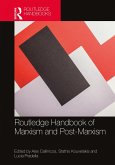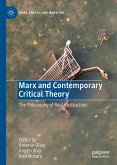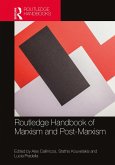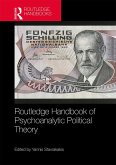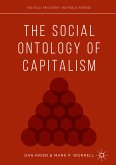With this timely commitment, Jacques Bidet unites the theories of arguably the world's two greatest emancipatory political thinkers. In this far-reaching and decisive text, Bidet examines Marxian and Foucauldian criticisms of capitalist modernity.
For Marx, the intersection between capital and the market is crucial, while for Foucault, the organizational aspects of capital are what really matter. According to Marx, the ruling class is identified with property; with Foucault, it is the managers who hold power and knowledge that rule. Bidet identifies these two sides of capitalist modernity as 'market' and 'organization', showing that each leads to specific forms of social conflict; against exploitation and austerity, over wages and pensions on the one hand, and against forms of 'medical' and work-based discipline, control of bodies and prisons on the other.
Bidet's impetus and clarity however serve a greater purpose: uniting two souls of critical social theory, in order to overcome what has become an age-long separation between the 'old left' and the 'new social movements'.
For Marx, the intersection between capital and the market is crucial, while for Foucault, the organizational aspects of capital are what really matter. According to Marx, the ruling class is identified with property; with Foucault, it is the managers who hold power and knowledge that rule. Bidet identifies these two sides of capitalist modernity as 'market' and 'organization', showing that each leads to specific forms of social conflict; against exploitation and austerity, over wages and pensions on the one hand, and against forms of 'medical' and work-based discipline, control of bodies and prisons on the other.
Bidet's impetus and clarity however serve a greater purpose: uniting two souls of critical social theory, in order to overcome what has become an age-long separation between the 'old left' and the 'new social movements'.
'The ongoing confrontation between Marx and Foucault is a primary theoretical issue implicit in every political struggle today, whether domestic or international. Bidet's careful and detailed staging of the intersections of these two quite different bodies of theory is an indispensable exercise.'
Fredric Jameson, author of The Political Unconscious and Marxism and Form
'In this important work, Jacques Bidet shows with patient and piercing insight why it is necessary to link Foucault with Marx (and Marx with Foucault) in order to make sense of the contemporary world. It will undoubtedly become an essential work for anyone seeking to think through the productive relations between the two thinkers.'
Nick Srnicek, co-author of Inventing the Future: Postcapitalism and a World Without Work
'In the growing literature confronting and combining the legacies of Marx and Foucault, Jacques Bidet's contribution will stand out with exceptional relevance. It is both firmly anchored in the author's doctrine of the "dual" nature of capitalist domination (capital as property and capital as knowledge) and full of imaginative readings of the texts.'
Etienne Balibar, co-author of Reading Capital
'Bidet creatively interrogates Marx's critique of property and class relations and Foucault's critique of knowledge-power relations to produce an original synthesis that informs a novel approach to resistance and struggles for counter-hegemony in the present neoliberal conjuncture.'
Robert Jessop, author of The Future of the Capitalist State
'Highly accomplished...a superb theoretical synthesis.'
LSE Review of Books
'Represents yet another contribution to the eventual overcoming of an academic skirmish between advocates of Foucault and Marx, itself a smaller conflict in the larger battle of postmodernism versus Marxism.'
Contrivers' Review
'Competent and lucid ... hold[s] out hope of reconnecting what used to be called the "new social movements" with struggles against capitalism.'
Marx and Philosophy Review of Books
Fredric Jameson, author of The Political Unconscious and Marxism and Form
'In this important work, Jacques Bidet shows with patient and piercing insight why it is necessary to link Foucault with Marx (and Marx with Foucault) in order to make sense of the contemporary world. It will undoubtedly become an essential work for anyone seeking to think through the productive relations between the two thinkers.'
Nick Srnicek, co-author of Inventing the Future: Postcapitalism and a World Without Work
'In the growing literature confronting and combining the legacies of Marx and Foucault, Jacques Bidet's contribution will stand out with exceptional relevance. It is both firmly anchored in the author's doctrine of the "dual" nature of capitalist domination (capital as property and capital as knowledge) and full of imaginative readings of the texts.'
Etienne Balibar, co-author of Reading Capital
'Bidet creatively interrogates Marx's critique of property and class relations and Foucault's critique of knowledge-power relations to produce an original synthesis that informs a novel approach to resistance and struggles for counter-hegemony in the present neoliberal conjuncture.'
Robert Jessop, author of The Future of the Capitalist State
'Highly accomplished...a superb theoretical synthesis.'
LSE Review of Books
'Represents yet another contribution to the eventual overcoming of an academic skirmish between advocates of Foucault and Marx, itself a smaller conflict in the larger battle of postmodernism versus Marxism.'
Contrivers' Review
'Competent and lucid ... hold[s] out hope of reconnecting what used to be called the "new social movements" with struggles against capitalism.'
Marx and Philosophy Review of Books




